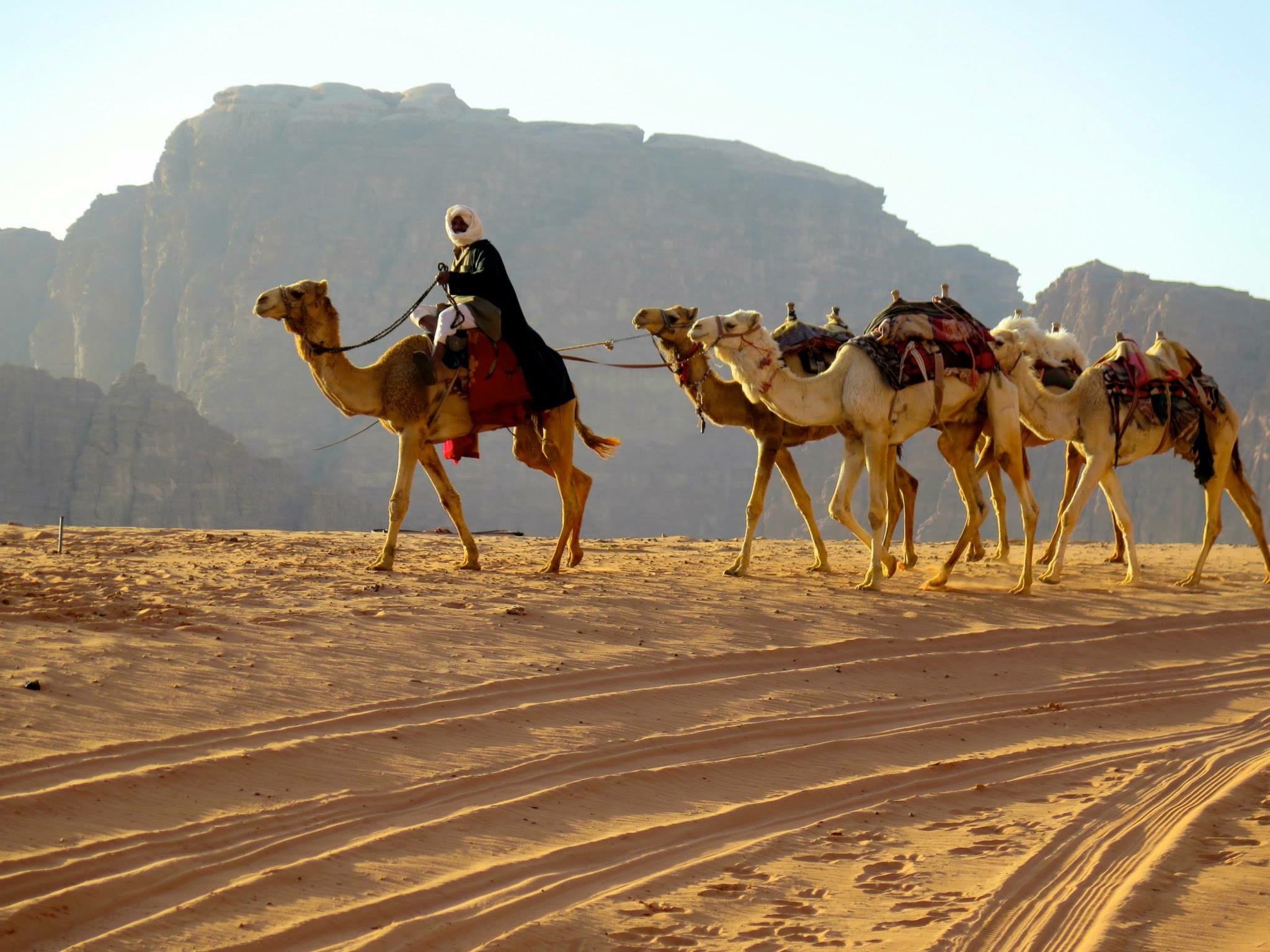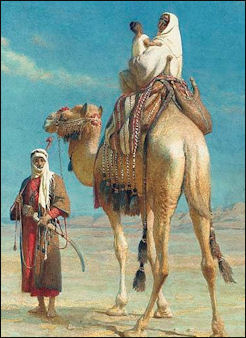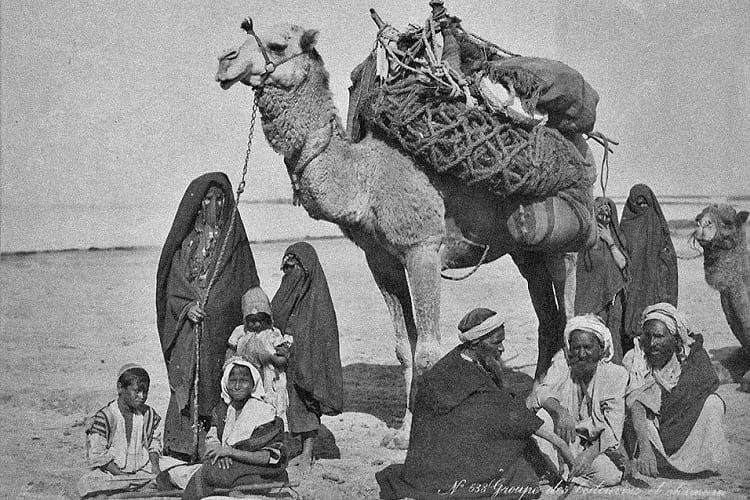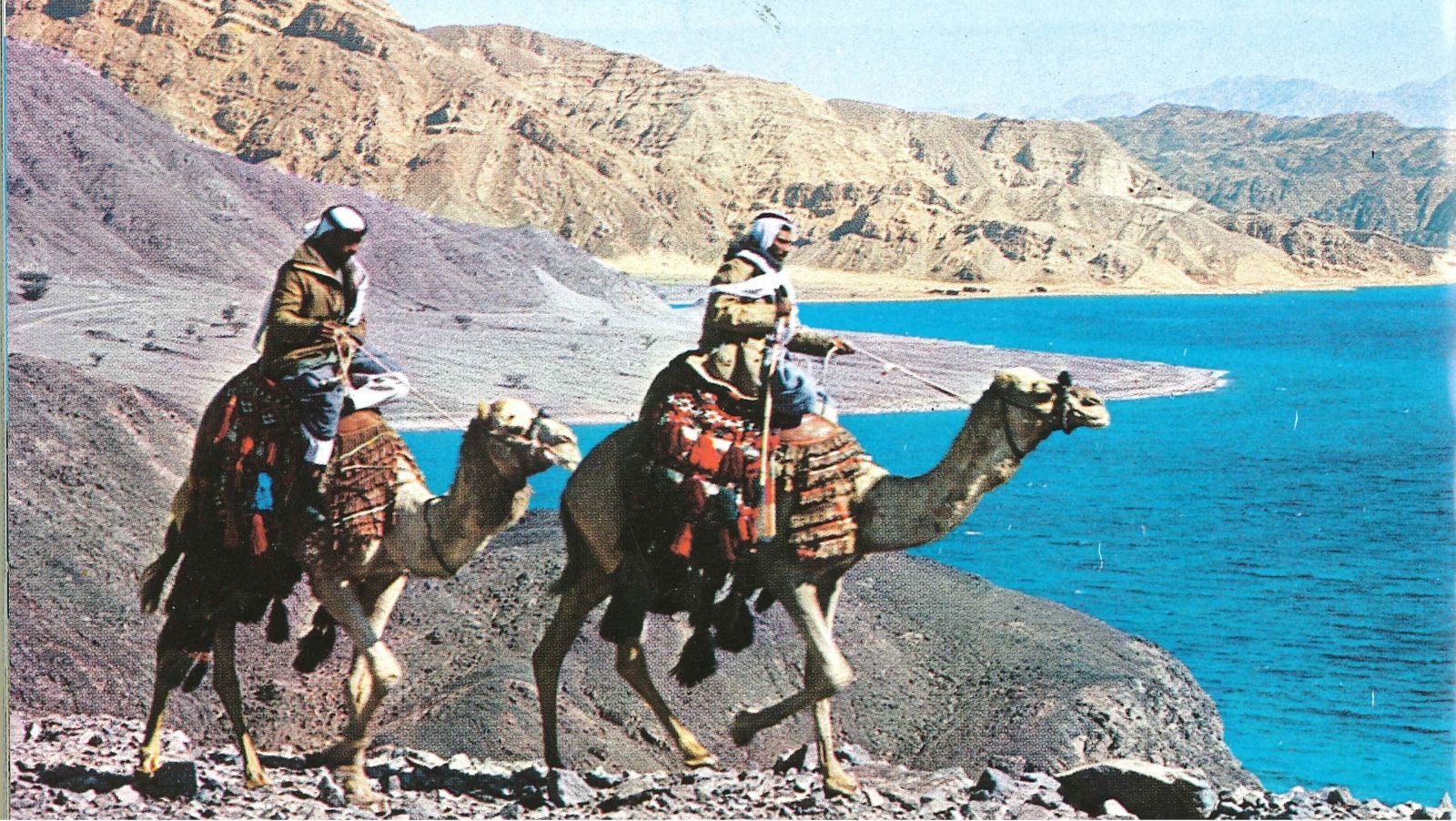The Bedouin Way of Life: A Unique and Fascinating Culture
Jun 6
Wandering through the vast, arid wilderness of the Middle East, one might come across a group of people living in simple, makeshift tents and relying solely on their camels and goats for survival. This is the world of the Bedouin, a nomadic tribe with a way of life that has remained relatively unchanged for thousands of years. With their unique traditions, customs and beliefs, the Bedouin culture is a fascinating and intricate web of traditions and values that is both mysterious and alluring. From their impeccable hospitality to their intricate camel caravans, something truly enchanting about the Bedouin way of life captures the imagination and transports one back in time. Join me as we delve deeper into the fascinating world of the Bedouin and explore their captivating culture that has captured people's hearts worldwide.

Introduction to the Bedouin Tribes of the Middle East
Welcome to the fascinating world of the Bedouin tribes of the Middle East! These nomads are known for their incredible hospitality and arduous lifestyle. "Bedouin" means "desert people", primarily found in Jordan, Iraq, Saudi Arabia, Yemen, Oman, and Egypt. Bedouin culture has a rich history spanning back several millennia. They are famous for touching noses as a greeting, a sign of respect and hospitality. The Bedouin language can vary depending on the region and dialects, with some comparing it in style to Shakespearean English. Hospitality is considered a sacred duty and an honour among the Bedouin, who will go to great lengths to feed and protect strangers. They are devout Sunni Muslims and observe traditional Muslim customs, including the ritual sacrifice of animals. [1][2]

The Meaning and Origins of Bedouin
If you're interested in unique and fascinating cultures, you might want to learn more about the Bedouin way of life. The Bedouins are nomadic peoples from the Middle Eastern deserts, especially from the Arabian and Saharan regions. Historians have documented them since ancient times, living a nomadic lifestyle where they practised animal husbandry and travelled from place to place in search of shelter, better pastures, and water.
The Bedouin tribes have traditionally been classified according to the animal species that are the basis of their livelihood. Camel nomads occupy huge territories and are organized into large tribes in the Arabian and Saharan deserts. Sheep and goat nomads have smaller ranges, mainly near the cultivated regions of Jordan, Syria, and Iraq. Cattle nomads are found chiefly in South Arabia and in the Sahel, where they are called Baggara. Bedouin society is tribal and patriarchal, typically composed of extended families that are patrilineal and exogamous.
Over the centuries, modernization has played a considerable role in how the lifestyle of Bedouins has evolved. While most Bedouin tribes used to be fully nomadic, only about 2% are today. Amenities like hot water and electricity pushed Bedouins to adopt a modern lifestyle over the last century. It is now a matter of choice and convenience. A good percentage of Bedouins in Jordan live a hybrid lifestyle where they live in small permanent houses in towns and villages while maintaining a traditional tent in the wilderness during the pasture seasons in the spring and summer. While many still work in animal husbandry, they also typically work another job on the side, often in tourism. Many Bedouins work full-time in places like Wadi Rum and Petra, where tourism is prevalent.
One of the most distinctive aspects of the Bedouin culture is their hospitality. It is a tradition that guests can stay for up to three days when they arrive at a Bedouin's home, and only on the fourth day the host is allowed to ask about the visitors' intentions. This ingrained hospitality is an integral part of the culture that dates back thousands of years for anthropological, traditional, and religious reasons. The traditional nomadic lifestyle, it came out of necessity. It also originates from traditional Arabic hospitality, where the more hospitality you show, the more honour you gain.
Another Bedouin tradition that is still prevalent today is their judicial system. Historically, Bedouins have had an independent tribal justice system used to resolve issues between tribes. That tribal system still exists today but coexists with the modern legal systems imposed by national governments on the Bedouin territories.
Overall, the Bedouin way of life is fascinating to learn about. Despite the growing influence of modernity, their tradition and culture are still deeply rooted in their daily lives. If you can encounter Bedouins during your travels, take a moment to immerse yourself in this unique way of life and learn from their rich cultural heritage. [3][4]
The Bedouin tribes have traditionally been classified according to the animal species that are the basis of their livelihood. Camel nomads occupy huge territories and are organized into large tribes in the Arabian and Saharan deserts. Sheep and goat nomads have smaller ranges, mainly near the cultivated regions of Jordan, Syria, and Iraq. Cattle nomads are found chiefly in South Arabia and in the Sahel, where they are called Baggara. Bedouin society is tribal and patriarchal, typically composed of extended families that are patrilineal and exogamous.
Over the centuries, modernization has played a considerable role in how the lifestyle of Bedouins has evolved. While most Bedouin tribes used to be fully nomadic, only about 2% are today. Amenities like hot water and electricity pushed Bedouins to adopt a modern lifestyle over the last century. It is now a matter of choice and convenience. A good percentage of Bedouins in Jordan live a hybrid lifestyle where they live in small permanent houses in towns and villages while maintaining a traditional tent in the wilderness during the pasture seasons in the spring and summer. While many still work in animal husbandry, they also typically work another job on the side, often in tourism. Many Bedouins work full-time in places like Wadi Rum and Petra, where tourism is prevalent.
One of the most distinctive aspects of the Bedouin culture is their hospitality. It is a tradition that guests can stay for up to three days when they arrive at a Bedouin's home, and only on the fourth day the host is allowed to ask about the visitors' intentions. This ingrained hospitality is an integral part of the culture that dates back thousands of years for anthropological, traditional, and religious reasons. The traditional nomadic lifestyle, it came out of necessity. It also originates from traditional Arabic hospitality, where the more hospitality you show, the more honour you gain.
Another Bedouin tradition that is still prevalent today is their judicial system. Historically, Bedouins have had an independent tribal justice system used to resolve issues between tribes. That tribal system still exists today but coexists with the modern legal systems imposed by national governments on the Bedouin territories.
Overall, the Bedouin way of life is fascinating to learn about. Despite the growing influence of modernity, their tradition and culture are still deeply rooted in their daily lives. If you can encounter Bedouins during your travels, take a moment to immerse yourself in this unique way of life and learn from their rich cultural heritage. [3][4]

Bedouin Greetings: Nose Rubbing and its Significance
Are you curious about the customs and way of life of the Bedouin tribes of the Middle East? One of their unique features is the way they greet each other. Instead of shaking hands or hugging, the Bedouins rub their noses as a sign of friendship and respect. This tradition has been a symbolic part of their culture for at least 15 centuries and is meant to show pride and dignity. Interestingly, various dialects of Arabic are spoken among the different Bedouin tribes, and Bedu Arabic has been compared in style to Shakespearian English. [5][6]

Arabic Dialects Spoken by Bedouin Tribes
Regarding the language spoken by Bedouin tribes, it's important to note that various dialects of Arabic are used within the different regions. Bedu Arabic can refer to Bedawi Arabic, which is mostly utilized in eastern Egypt. Meanwhile, Hassaniya Arabic was originally spoken by the Beni Hassan, while Libyan Arabic or Sulaimitian Arabic is spoken in Libya and surrounding areas. Najdi Arabic is often spoken in central Saudi Arabia. Lastly, Saharan Arabic is a form of Arabic commonly used in Algeria. Interestingly, Bedu Arabic has been compared in style to Shakespearian English. Knowing the intricacies of each dialect can help visitors communicate with the Bedouins effectively. [7][8]

Hospitality as a Sacred Duty Among Bedouin Culture
You are about to embark on a journey to explore the unique and fascinating culture of the Bedouin tribes in the Middle East. One of the most striking aspects of Bedouin culture is their hospitality. For the Bedouins, hospitality is considered a sacred duty, and they take great pride in their ability to offer it. They believe they must provide food and shelter to anyone who comes to their tent, even if it is their sworn enemy. It is a custom deeply ingrained in Bedouin culture and passed down for generations.
In Bedouin culture, visitors are often invited to share coffee and are absorbed into the host’s household for the stay. They are welcomed with open arms and treated with the utmost respect. Bedouins will go to great lengths to ensure their guests are well-fed, comfortable, and happy. They will even boil their last rice and kill their last sheep to feed a stranger. Such generosity is seen as a way to build relationships and strengthen bonds between people.
It is not just about the food and drink, though. Bedouin hospitality goes beyond that, encompassing the entire way of life. Visitors are treated like family members, and every effort is made to make them feel at home. Bedouins take pride in showing their guests around and sharing their culture, customs, and traditions. They believe that by doing so, they are enriching the lives of their guests and their own.
In Bedouin culture, hospitality is not just a one-time gesture. It is an ongoing process that continues throughout the entire stay. Visitors are invited to participate in all aspects of Bedouin life, from cooking and caring for livestock to storytelling and singing. It is a way to immerse them in the culture and reinforce the idea that everyone is welcome and has a place in the Bedouin community.
Bedouin hospitality is a testament to the generosity and kindness of the culture. It embodies the values the Bedouins hold dear: family, community, and respect. If you ever can visit a Bedouin tent, take it. Not only will you enjoy a warm welcome, but you will also have a chance to experience one of the world's most unique and fascinating cultures. [9][10]
In Bedouin culture, visitors are often invited to share coffee and are absorbed into the host’s household for the stay. They are welcomed with open arms and treated with the utmost respect. Bedouins will go to great lengths to ensure their guests are well-fed, comfortable, and happy. They will even boil their last rice and kill their last sheep to feed a stranger. Such generosity is seen as a way to build relationships and strengthen bonds between people.
It is not just about the food and drink, though. Bedouin hospitality goes beyond that, encompassing the entire way of life. Visitors are treated like family members, and every effort is made to make them feel at home. Bedouins take pride in showing their guests around and sharing their culture, customs, and traditions. They believe that by doing so, they are enriching the lives of their guests and their own.
In Bedouin culture, hospitality is not just a one-time gesture. It is an ongoing process that continues throughout the entire stay. Visitors are invited to participate in all aspects of Bedouin life, from cooking and caring for livestock to storytelling and singing. It is a way to immerse them in the culture and reinforce the idea that everyone is welcome and has a place in the Bedouin community.
Bedouin hospitality is a testament to the generosity and kindness of the culture. It embodies the values the Bedouins hold dear: family, community, and respect. If you ever can visit a Bedouin tent, take it. Not only will you enjoy a warm welcome, but you will also have a chance to experience one of the world's most unique and fascinating cultures. [9][10]
